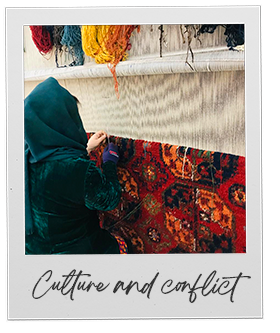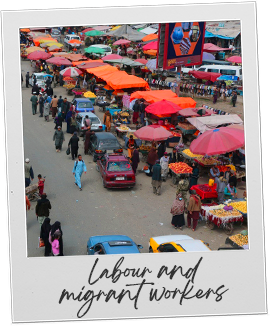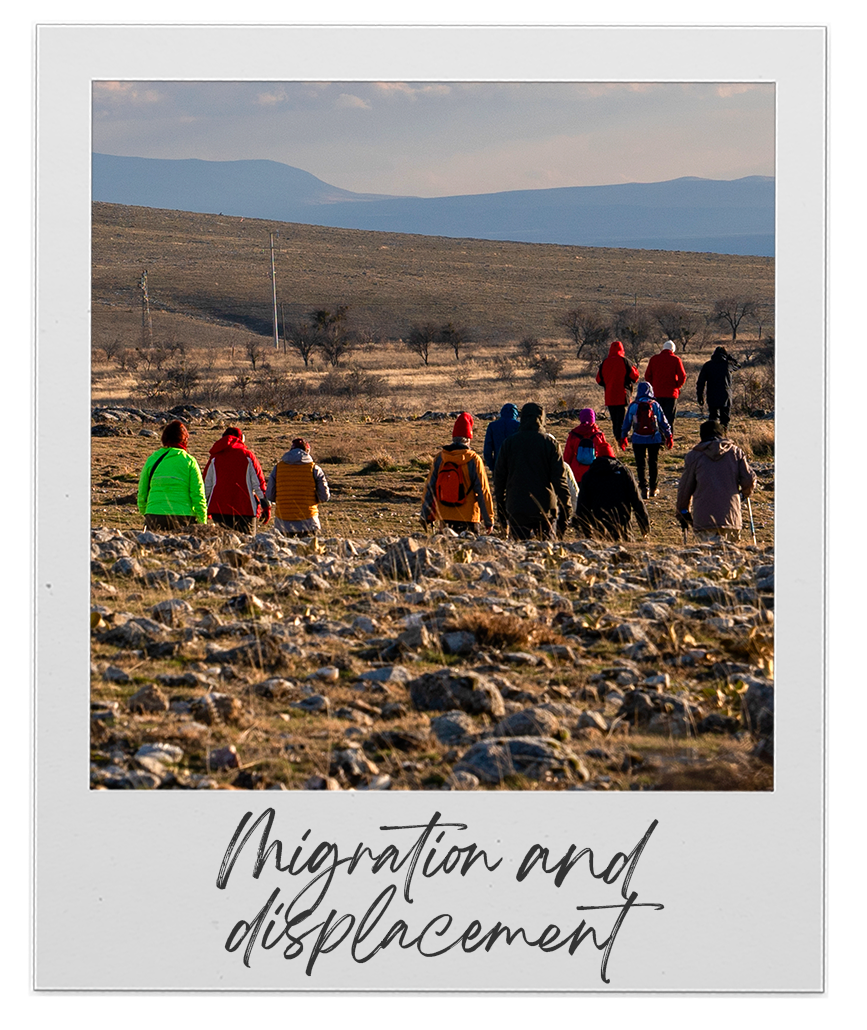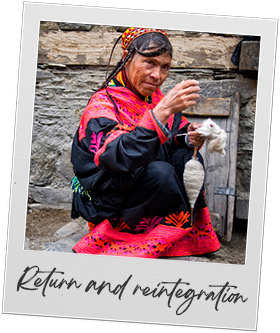Culture and conflict
This research investigates the value of culture to women in conflict settings. It explores gendered economic exclusion and its relationship to peacebuilding, economic agency and empowerment. It uses a cultural mapping methodology to explore how communities of women across different conflict contexts rely on coded and tacit knowledge to rebuild their lives and to understand how cultural practices continue to exist and resist in these challenging contexts.
103 women were involved in the project, across eight research sites in India, Pakistan, Sri Lanka and Afghanistan. The research investigates the value of culture to women in conflict settings. It explores gendered economic exclusion and its relationship to peacebuilding, economic agency and empowerment. It uses a cultural mapping methodology to explore how communities of women across different conflict contexts rely on coded and tacit knowledge to rebuild their lives and to understand how cultural practices continue to exist and resist in these challenging contexts.
Participatory action research allowed those most impacted to lead in framing questions and determining which actions will be useful in effecting positive change.
Through photography, colour theory training, pattern making and other craft making training sessions, the women expanded and developed cultural and economic skills in craft. During the process, the women engaged in conversations about issues of identity and how intersectionality influences the everyday. They spoke about their culture, peace and conflict with singing, myth and legend story exchange. Love and romance are part of the dialogue while the women work on their textiles. Slightly tougher discussions about community relationships and everyday discrimination were also documented.
The crafts produced by the women have been shared widely in art exhibitions and through ongoing sales of their art and crafts in markets across the UK.
While the Women Peace and Security agenda acknowledges the importance of economic empowerment, agency and sustainability it fails to adequately emphasise how such work can and often does emerge organically and informally from the bottom up in conflict-affected contexts by the women themselves. Economic livelihood does not just mean formal employment in jobs that require qualifications. It also means the vast and varied informal sector and home-based economies which are often rooted in cultural practices and craft making.
Craft gallery
Resources

Shafeeqa: Mends a future, one motif at a time
This case study shares the experience of Shafeeqa, a master artisan from the Anchar Lake area of Srinagar, who has worked in traditional Sozni and Tilla embroidery for over four decades. Despite living through persistent poverty, political instability, and conflict-related disruptions in Kashmir, she used […]
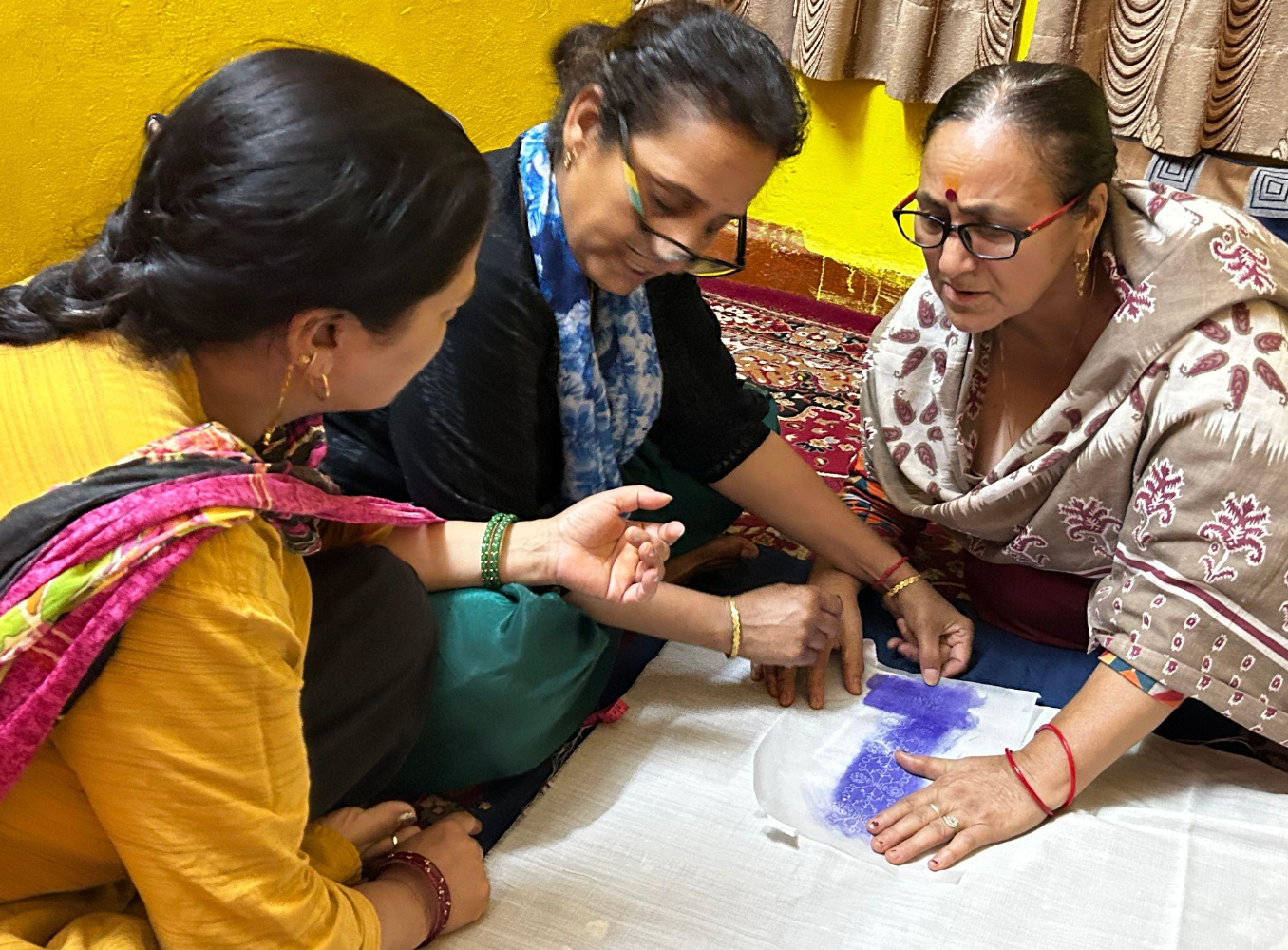
Crafting Resilience: Basanti’s Journey of Healing and Empowerment
This case study documents the experience of Basanti, a displaced woman from Kashmir who has navigated multiple challenges linked to conflict, displacement, and economic insecurity. Following her relocation to Jammu in the early 1990s, Basanti and her family experienced prolonged instability across various refugee camps, […]

Afghanistan: Researching shifting landscapes
Afghanistan: Researching Shifting Landscapes (2019–2024) follows the work of the Afghan Solidarity Coalition, a global partnership of scholars and practitioners, and the resilient women artisans of Afghanistan as they navigate profound environmental, social, and economic changes. Through these intimate vignettes, woven together by a dedication […]
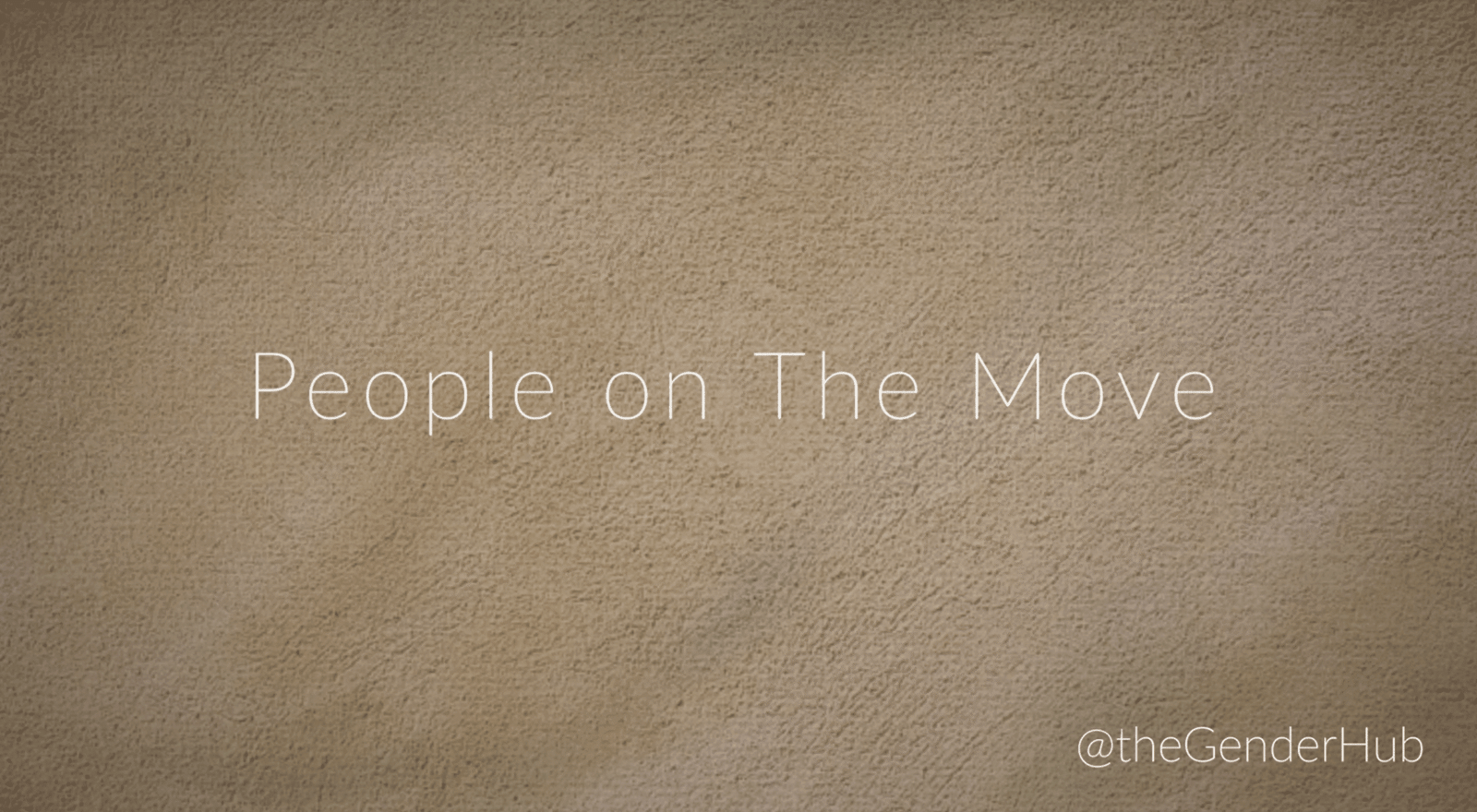
People on the Move
People on the Move is a short animated film from the Gender, Justice, and Security Hub that synthesises field research in Afghanistan conducted between 2019 and 2024. It outlines the Hub’s mandate to document conflict, discrimination and violence against marginalised communities, demonstrates how political instability […]











